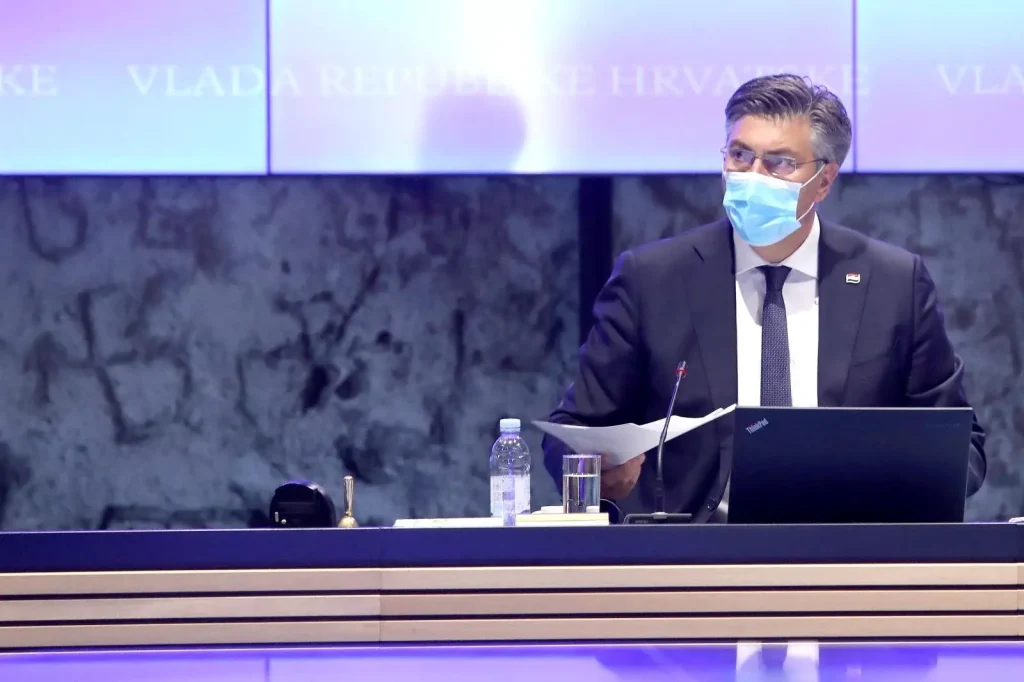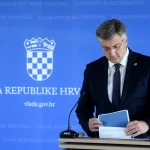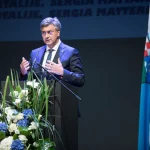The largest number of cases were registered in four Dalmatian counties which are all tourist destinations, so the national COVID-19 crisis management team will introduce additional epidemiological measures in that area to limit the possibility of the infection spreading, to control events with a greater number of participants, to avoid risks and to make tourist season possible, Plenković announced at his cabinet’s session.
He added that the government took into account the health aspect, but also the tourist, economic, financial, and social aspects.
As for vaccination, he said that as of yesterday Croatia passed the number of 1.6 million people vaccinated with the first dose against coronavirus.
“That’s very good, we’re getting closer to the number of 48% of the vaccinated adult population. I still call on everyone, especially those in two minds or in fear, to get informed, to have confidence in the profession, medicine, all those who want to protect as many citizens as possible, and to decide to get vaccinated themselves,” the prime minister said.
94% of hospitalized COVID-19 patients not vaccinated against this infection
He said that there was “an abundance” of vaccines and recalled last week’s decision to enable all Croatian citizens without mandatory health insurance and Croatia from all over the world, as well as all other foreign nationals, to get vaccinated, so, for instance, someone from Mostar going on holiday to Makarska can get vaccinated for free there.
“I would like us to contribute to the protection against COVID beyond our borders also in that way because this is a global game, and with our action, we want to make that contribution,” Plenković said, inviting people to use this opportunity.
He also underlined that 94% of hospitalized COVID patients had not been fully inoculated against that infection.
Ministers: Numbers growing, a new package of measures to be introduced
Health Minister Vili Beroš said at the government session that the number of COVID cases was unfortunately rising and that the epidemiological situation in some counties called for caution, while Interior Minister Davor Božinović announced the introduction of a new set of measures.
In the two-week period from 5 to 18 July, Zadar, Split-Dalmatia, Primorje-Gorski Kotar counties and the City of Zagreb registered the largest number of new cases, Beroš said.
“The numbers are unfortunately still growing, the increase in positive cases over the past seven days is 46.1%, the situation in some counties calls for caution, so it requires increased monitoring and caution,” said Beroš, warning of the easy spread of the new variant of the virus and of several smaller hotspots.
He said the situation in hospitals was generally favorable, with the exception of some hospitals in Dalmatia, which are recording a slight increase in the number of hospitalized patients. There are currently 122 patients in hospitals, 13 of whom are on ventilators, he said, reiterating that 94% of hospitalized patients have not been vaccinated against COVID-19.
A total of 2.9 million doses have been administered, and the minister announced pharmacies would join the vaccination process and issue COVID certificates.
On the 514th day since the outbreak of coronavirus in Croatia, 179 new cases have been registered, the percentage of positive tests over the past 24 hours is 4.56%, and Croatia’s 14-day incidence rate per 100,000 inhabitants is 35.9, the health minister said.
For more about politics in Croatia, follow TCN’s dedicated page.











